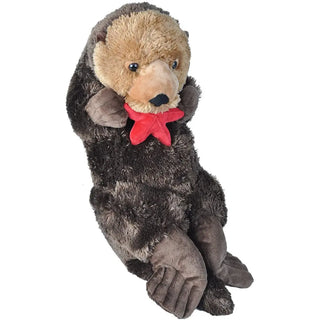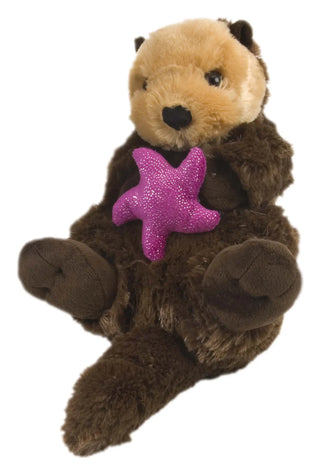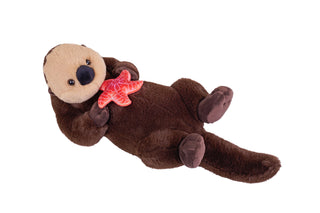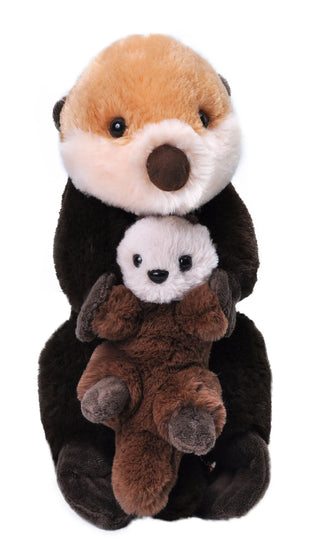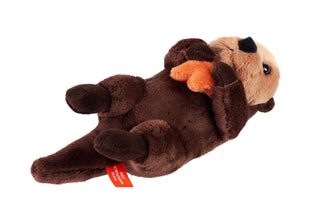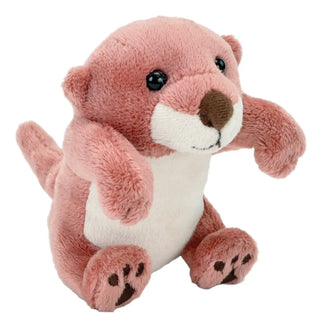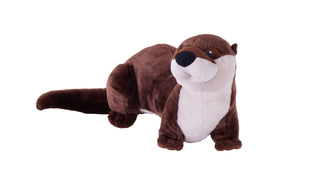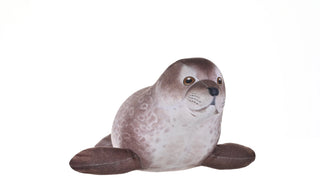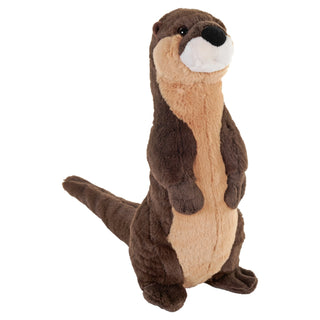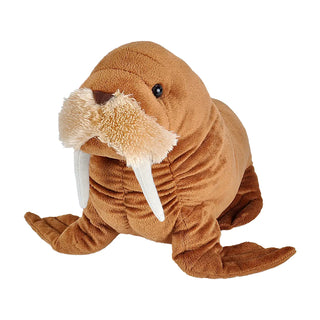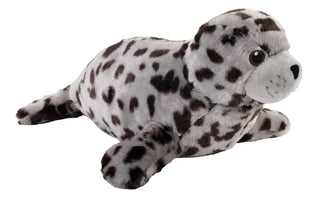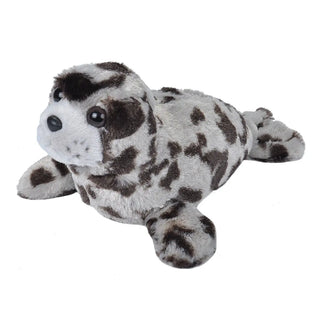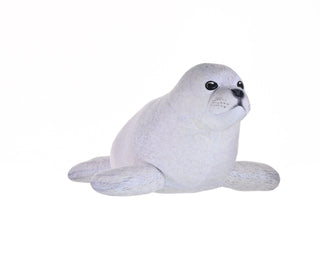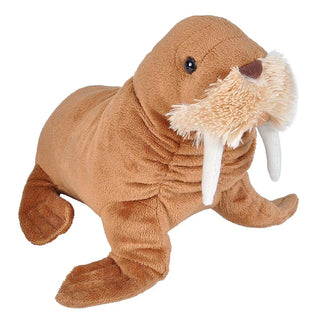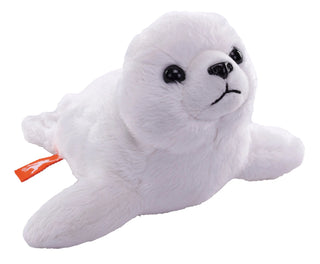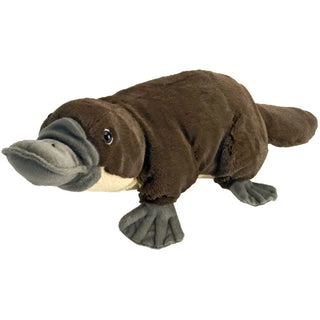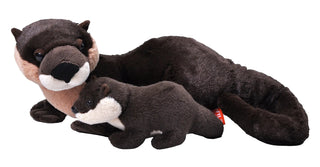Your Search For "sea otter" Revealed The Following:
Filter
Active Filters
Sea Otter Stuffed Animal - 7"
$9.99
- Unit price
- / per
INCLUDES:
- Age:0+
- AnimalType:Sea Otter
- Brand:Hug'ems
- Easter
- Gender:Boy
- Gender:Girl
- Sea Otter
- Size:7"
$9.99
- Unit price
- / per
Sea Otter Stuffed Animal - 30"
$79.99
- Unit price
- / per
INCLUDES:
- Age:0+
- AnimalType:Sea Otter
- Brand:Cuddlekins
- Gender:Boy
- Gender:Girl
- Sea Otter
- Size:30"
$79.99
- Unit price
- / per
Sea Otter Stuffed Animal - 15"
$21.99
- Unit price
- / per
INCLUDES:
- Age:0+
- AnimalType:Sea Otter
- Brand:Cuddlekins
- Gender:Boy
- Gender:Girl
- Sea Otter
- Size:15"
$21.99
- Unit price
- / per
Huggers Otter Stuffed Animal - 8"
$9.99
- Unit price
- / per
INCLUDES:
- Age:10M+
- AnimalType:Sea Otter
- Brand:Huggers
- Easter
- Gender:Boy
- Gender:Girl
- Sea Otter
- Size:8"
$9.99
- Unit price
- / per
Earthkins Sea Otter Stuffed Animal - 15"
$38.99
- Unit price
- / per
INCLUDES:
- Age:0+
- Brand:Earthkins
- Gender:Boy
- Gender:Girl
- Size:15"
$38.99
- Unit price
- / per
Sea Otter - Mom & Baby 12"
$36.99
- Unit price
- / per
INCLUDES:
- Age:0+
- AnimalType:Sea Otter
- Brand:Mom & Baby
- Gender:Boy
- Gender:Girl
- Sea Otter
- Size:12"
$36.99
- Unit price
- / per
Sea Otter Stuffed Animal - 8"
$12.99
- Unit price
- / per
INCLUDES:
- Age:0+
- AnimalType:Sea Otter
- Brand:Cuddlekins
- Gender:Boy
- Gender:Girl
- Sea Otter
- Size:8"
$12.99
- Unit price
- / per
Pocketkins Eco Sea Otter Stuffed Animal - 5"
$8.99
- Unit price
- / per
INCLUDES:
- Age:0+
- Brand:Pocketkins Eco
- Features:Eco
- Gender:Boy
- Gender:Girl
- Size:5"
$8.99
- Unit price
- / per
Otter Screen Grabber
Regular price
$3.99
$6.99
Save 43%
- Unit price
- / per
INCLUDES:
- Age:0+
- Brand:Screen Grabbers
- Gender:Boy
- Gender:Girl
- Size:5"
Regular price
$3.99
$6.99
Save 43%
- Unit price
- / per
Cuddlekins Eco River Otter Stuffed Animal - 12"
$24.99
- Unit price
- / per
INCLUDES:
- Age:0+
- Brand:Cuddlekins Eco
- Features:Eco
- Gender:Boy
- Gender:Girl
- Size:12"
$24.99
- Unit price
- / per
River Otter Stuffed Animal - 8"
$12.99
- Unit price
- / per
INCLUDES:
- Age:0+
- AnimalType:River Otter
- Brand:Cuddlekins
- Gender:Boy
- Gender:Girl
- River Otter
- Size:8"
$12.99
- Unit price
- / per
Naturekins Harbor Seal Stuffed Animal - 12"
$24.99
- Unit price
- / per
INCLUDES:
- Age:0+
- Brand:Naturekins
- Gender:Boy
- Gender:Girl
- Size:12"
$24.99
- Unit price
- / per
Harp Seal Pup Stuffed Animal - 15"
$21.99
- Unit price
- / per
INCLUDES:
- Age:0+
- AnimalType:Harp Seal
- Brand:Cuddlekins
- Gender:Boy
- Gender:Girl
- Harp Seal
- Size:15"
$21.99
- Unit price
- / per
Cuddlekins River Otter Stuffed Animal - 12"
$21.99
- Unit price
- / per
INCLUDES:
- Age:0+
- Brand:Cuddlekins
- Gender:Boy
- Gender:Girl
- Size:12"
$21.99
- Unit price
- / per
Walrus Stuffed Animal - 12"
$21.99
- Unit price
- / per
INCLUDES:
- Age:0+
- AnimalType:Walrus
- Brand:Cuddlekins
- Gender:Boy
- Gender:Girl
- Size:15"
- Walrus
$21.99
- Unit price
- / per
Cuddlekins Eco Harbor Seal Stuffed Animal - 12"
$24.99
- Unit price
- / per
INCLUDES:
- Age:0+
- Brand:Cuddlekins Eco
- Features:Eco
- Gender:Boy
- Gender:Girl
- Size:12"
$24.99
- Unit price
- / per
Harbor Seal Stuffed Animal - 8"
$12.99
- Unit price
- / per
INCLUDES:
- Age:0+
- AnimalType:Harbor Seal
- Brand:Cuddlekins
- Gender:Boy
- Gender:Girl
- Harbor Seal
- Size:8"
$12.99
- Unit price
- / per
Naturekins Harp Seal Stuffed Animal - 12"
$24.99
- Unit price
- / per
INCLUDES:
- Age:0+
- Brand:Naturekins
- Gender:Boy
- Gender:Girl
- Size:12"
$24.99
- Unit price
- / per
Walrus Stuffed Animal - 8"
$12.99
- Unit price
- / per
INCLUDES:
- Age:0+
- AnimalType:Walrus
- Brand:Cuddlekins
- Gender:Boy
- Gender:Girl
- Size:8"
- Walrus
$12.99
- Unit price
- / per
Pocketkins Eco Harp Seal Stuffed Animal - 5"
$8.99
- Unit price
- / per
INCLUDES:
- Age:0+
- Brand:Pocketkins Eco
- Features:Eco
- Gender:Boy
- Gender:Girl
- Size:5"
$8.99
- Unit price
- / per
Pocketkins Eco Harbor Seal Stuffed Animal - 5"
$8.99
- Unit price
- / per
INCLUDES:
- Age:0+
- Brand:Pocketkins Eco
- Features:Eco
- Gender:Boy
- Gender:Girl
- Size:5"
$8.99
- Unit price
- / per
Platypus Stuffed Animal - 12"
$21.99
- Unit price
- / per
INCLUDES:
- Age:0+
- AnimalType:Platypus
- Brand:Cuddlekins
- Gender:Boy
- Gender:Girl
- Platypus
- Size:12"
$21.99
- Unit price
- / per
River Otter - Mom & Baby 12"
$36.99
- Unit price
- / per
INCLUDES:
- Age:0+
- AnimalType:River Otter
- Brand:Mom & Baby
- Gender:Boy
- Gender:Girl
- River Otter
- Size:12"
$36.99
- Unit price
- / per
You're viewing 1-23 of 23 results


